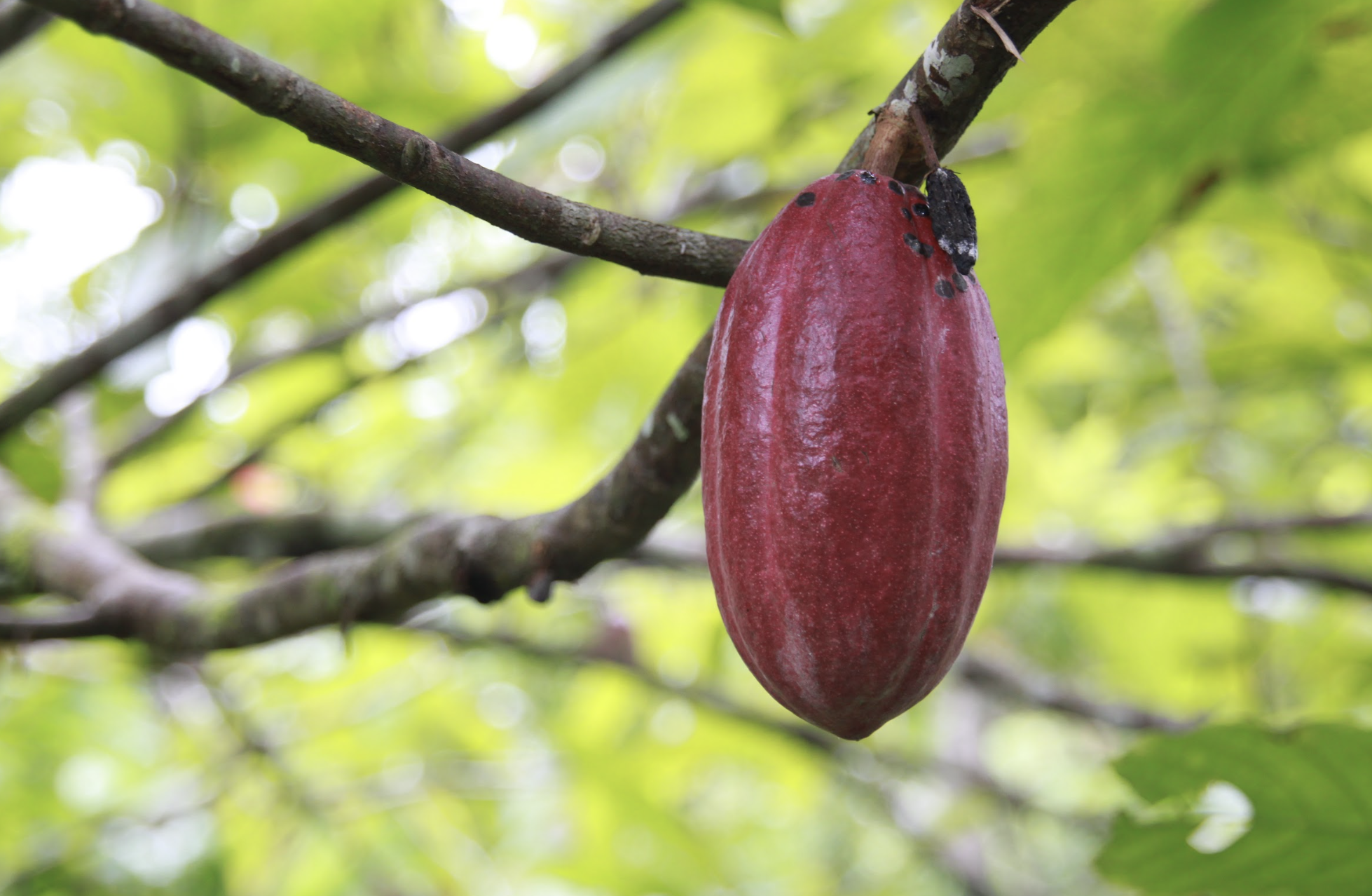
Cocoa Lessons from Cameroon
Did you know that Cameroon still has 40% of its territory covered by forests? As we fight against deforestation in other cocoa growing countries, Cameroon is one place where there is still a lot of forest to be saved.
It is striking how much forest remains, especially when you compare this to the main cocoa producing countries in West Africa. Over the last 60 years, Côte d’Ivoire and Ghana have lost approximately 94% and 80% of their forests, respectively. One-third of this loss was due to clearing land for cocoa farming. In sharp contrast with these countries, traveling through Cameroon still means driving through large, intact forests.
Photo: Ruben Bergsma. Road to cocoa farms in Cameroon.
While Cameroon's forests seem peaceful, an underlying tension lingers. Currently the country produces around 290,000 tons of cocoa per year, much of it cultivated in an agroforestry-like setting—nestled beneath towering native trees and mixed in with other crops—a practice highly esteemed by locals we spoke with, boasting ecological advantages. Yet, the absence of standardized definitions for agroforestry in cocoa production muddles the assessment of its prevalence in Cameroon. Without clear, standardized guidelines, there is a risk that this becomes a transition phase from forest to mono-cropping.
Photo: Ruben Bergsma. Cocoa grown in agroforestry setting
Cameroon also has the ambitious target of increasing production to 600,000 tons in 2025, more than doubling production in just a few years. This will put even more pressure on forests as more land for cocoa production will be needed. Farmers may also try to increase production by adding more cocoa trees per hectare. This would make production look less and less like agroforestry over time.
However, the primary cause of unease centers on compliance with the EU Deforestation Regulation. Effective from December 2024, this regulation bars cocoa cultivated on deforested land from entering the European Market, necessitating concrete evidence to substantiate that cocoa is not from deforested land. Here lies the greatest challenge: verifying the cocoa's origin, exposing a significant gap in the process.
In Cameroon, over 40% of the cocoa is bought and sold by “coxeurs”, or middlemen. Trade is informal and not included in public statistics. There is little to no traceability for these beans. And while they may come from deforestation-free origins, it cannot be proven. Will this cocoa be considered EUDR compliant?
When we met with the Ministry of Trade and the ONCC (regulator), we heard a strong plea for support. They know that traceability and monitoring need to be in place by December 2024. They are working hard to set up the right systems and processes, but keenly felt the inadequacy of support from the EU and from companies. They felt a strong sense of injustice.
Photo: Ruben Bergsma. Meeting and presentation with cocoa farmers in rural Cameroon.
Without substantial assistance, Cameroon faces hurdles in timely compliance. The EU must offer more guidance and financial support, while companies should share data and provide assistance. Cameroon, classified as a lower-middle-income country by the OECD, heavily relies on exporting its cocoa to the EU (65% in 2020). A potential loss of this market might prompt increased sales to non-EU markets, but does that remove a financial reason to protect forests? What will happen to the second-largest tropical forest in the world?
Photo: Ruben Bergsma. Cocoa air drying.
Recommendations, based on the knowledge shared by the people we met:
Preserve high value timber species on farms.
Protect undisturbed forests.
Create clear guidelines for agroforestry
Protect forests through community forests managed by indigenous people.
Stimulate land and farm ownership of women
Support Cameroon with EUDR compliance
Reward Cameroon for protecting forests
If you are interested in getting involved in projects on the ground, please contact the Chocolate Scorecard team. There are many possibilities and we are happy to connect you with the right people.
Author: Ruben Bergsma
Chocolate Scorecard Core Team
Written after his travels through the forests of Cameroon in November 2023.



